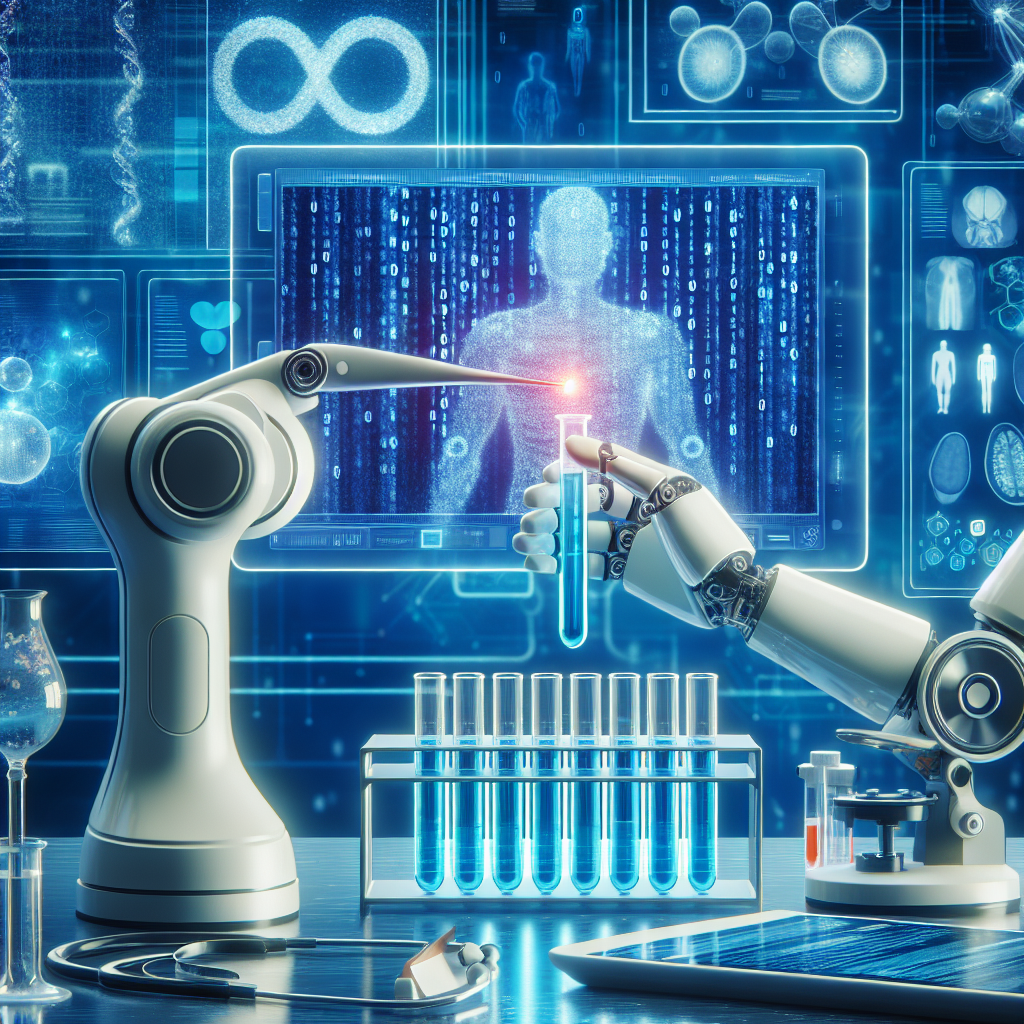The Potential of AI Development in Healthcare Diagnostics
Artificial Intelligence (AI) is revolutionizing the healthcare industry, particularly in the field of diagnostics. AI has the potential to significantly improve the accuracy, speed, and cost-effectiveness of medical diagnosis, leading to better patient outcomes and more efficient healthcare delivery.
One of the key advantages of AI in healthcare diagnostics is its ability to process and analyze vast amounts of data quickly and accurately. This includes medical imaging data such as X-rays, MRIs, and CT scans, as well as other types of patient data such as lab results, electronic health records, and genetic information. By harnessing the power of AI, healthcare providers can more effectively detect and diagnose diseases at an earlier stage, leading to improved treatment outcomes and reduced healthcare costs.
AI algorithms can also help to identify patterns and trends in patient data that may be missed by human practitioners. For example, AI can analyze a patient’s medical history, symptoms, and test results to identify potential risk factors for certain diseases or conditions. This can help healthcare providers to develop personalized treatment plans for each patient based on their individual needs and risk factors.
In addition, AI can help to streamline the diagnostic process by automating routine tasks such as data entry, image analysis, and report generation. This can free up healthcare professionals to focus on more complex and critical aspects of patient care, leading to greater efficiency and improved patient outcomes.
Furthermore, AI can facilitate remote diagnostics and telemedicine, allowing patients in remote or underserved areas to access high-quality healthcare services without the need to travel long distances. AI-powered diagnostic tools can be used to monitor patients remotely, analyze their symptoms, and provide real-time feedback to healthcare providers, allowing for timely intervention and treatment.
Despite the numerous benefits of AI in healthcare diagnostics, there are also challenges and limitations that need to be addressed. One of the main challenges is ensuring the accuracy and reliability of AI algorithms, as errors or biases in the data used to train these algorithms can lead to incorrect diagnoses or treatment recommendations. Additionally, there are concerns about the ethical and legal implications of using AI in healthcare, particularly in terms of patient privacy and data security.
To address these challenges, healthcare providers and AI developers need to work together to ensure that AI algorithms are rigorously tested and validated before they are deployed in clinical settings. This includes conducting large-scale clinical trials to evaluate the performance of AI algorithms in real-world scenarios and ensuring that they comply with regulatory standards and guidelines.
There is also a need to establish clear guidelines and protocols for the ethical use of AI in healthcare, including ensuring patient consent, protecting patient data, and maintaining transparency and accountability in the development and deployment of AI algorithms. By addressing these challenges and limitations, AI has the potential to revolutionize healthcare diagnostics and improve patient outcomes in ways that were previously unimaginable.
FAQs
Q: How does AI improve diagnostic accuracy in healthcare?
A: AI algorithms can process and analyze vast amounts of data quickly and accurately, enabling healthcare providers to detect and diagnose diseases at an earlier stage. AI can also help to identify patterns and trends in patient data that may be missed by human practitioners, leading to more personalized treatment plans and improved patient outcomes.
Q: What are the challenges of using AI in healthcare diagnostics?
A: One of the main challenges is ensuring the accuracy and reliability of AI algorithms, as errors or biases in the data used to train these algorithms can lead to incorrect diagnoses or treatment recommendations. There are also concerns about the ethical and legal implications of using AI in healthcare, particularly in terms of patient privacy and data security.
Q: How can healthcare providers ensure the ethical use of AI in diagnostics?
A: Healthcare providers and AI developers need to work together to ensure that AI algorithms are rigorously tested and validated before they are deployed in clinical settings. This includes conducting large-scale clinical trials to evaluate the performance of AI algorithms in real-world scenarios and ensuring that they comply with regulatory standards and guidelines.
Q: What are the potential benefits of using AI in healthcare diagnostics?
A: AI has the potential to significantly improve the accuracy, speed, and cost-effectiveness of medical diagnosis, leading to better patient outcomes and more efficient healthcare delivery. AI can also help to streamline the diagnostic process, automate routine tasks, and facilitate remote diagnostics and telemedicine, allowing patients in remote or underserved areas to access high-quality healthcare services.

